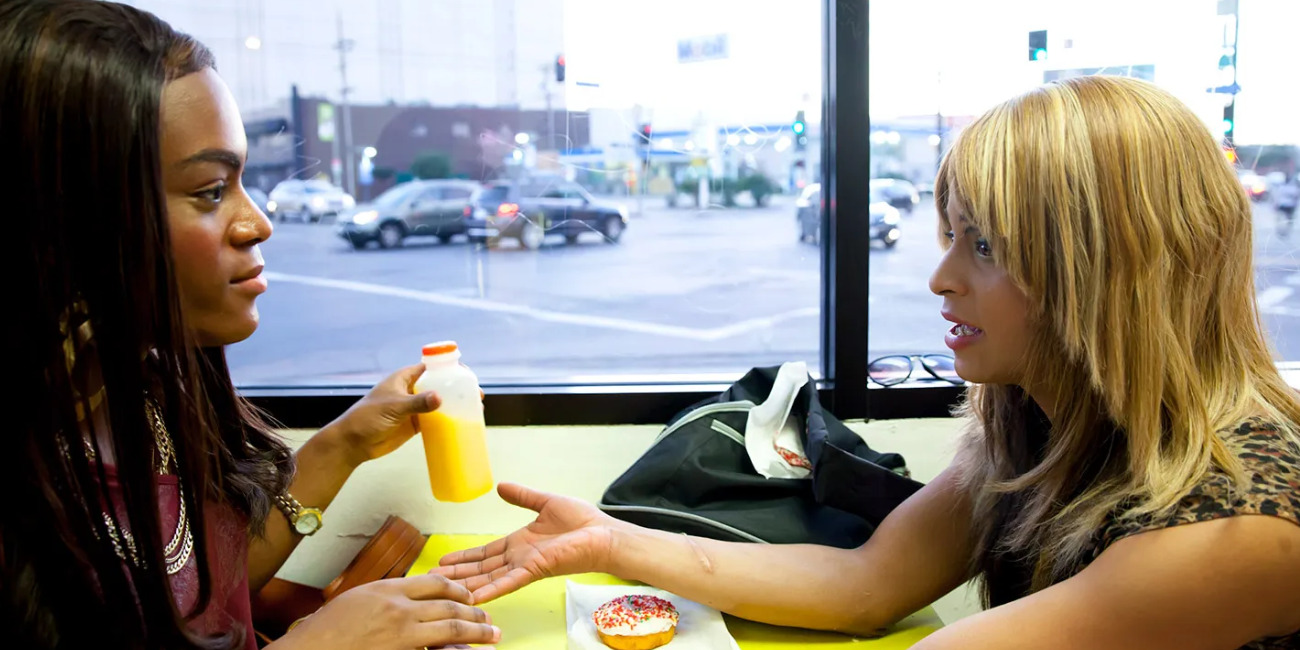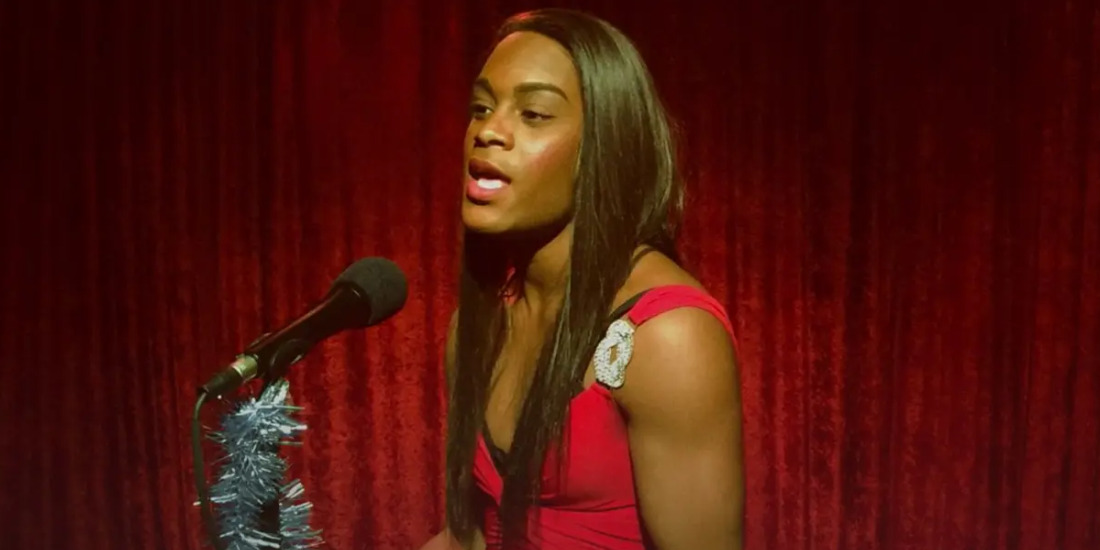The vivid cinematography of Sean Baker’s critically acclaimed 2015 comedy-drama film, ‘Tangerine,’ takes the viewers on a chaotic journey through the streets of Los Angeles’ Hollywood. Following Sin-Dee, a sex worker who returns to her neighborhood after spending time in prison, the film revolves around her haphazard quest to find her boyfriend, Chester’s mistress. Meanwhile, Sin-Dee’s best friend, Alexandra, attempts to reign the other woman in while also trying to gather a crowd for her Christmas Eve performance at a club. In the span of the few hours that follow, Sin-Dee manages to rope several other characters into her drama, including a taxi driver, Razmik.
Through unique filming techniques and raw storytelling, the film retains a sense of realism throughout its narrative, submerging the viewers in the characters’ realistic— if haywire— slice-of-life tale. Therefore, the protagonists, Sin-Dee and Alexandra’s characters’ connections to reality emerge as a natural source of curiosity.
Sin-Dee and Alexandra: Reflections of Real-Life
Sean Baker’s filmography is ripe with realistic, candid stories about the lives of unique yet wholly relatable characters. ‘Tangerine’ remains no exception, depicting a realistic account of the lives of two transgender sex workers. The two women, Sin-Dee and Alexandra, spend their day before Christmas Eve on the streets of Hollywood, engaging in their various life dramas— or attempting to flee from it. As such, throughout the day’s events, the film captures a frank account of their everyday lives. As per Baker, the majority of this on-screen account is not fictionalized.

Baker and his co-writer, Chris Bergoch, put in extensive research time— reportedly eight months— to learn about the reality of transgender sex workers within Los Angeles’ Hollywood neighborhood. During this process, the screenwriting duo spent time in the actual Donut Time bakery, where the film’s climax unravels to converse with the locals. Eventually, they made their way to an LGBTQ+ center in McCadden, where they met Mya Taylor, the actress behind Alexandra. Taylor, who shares her character’s experiences, took a quick interest in their project and ended up collaborating with the filmmakers. “We traded information, and I called her [Mya Taylor], and we started setting up meeting times where we would meet at the local fast food joint and talk for a while,” Baker told Go Into The Story.
Consequently, through Taylor, Baker was able to become acquainted with a number of people who ended up contributing to the project— including Kitana Kiki Rodriguez, who portrays Sin-Dee on the screen. Thus, the filmmaker was able to learn about the reality of the setting where he wanted his story to take place, allowing him access to information that led to the creation of Sin-Dee and Alexandra’s misadventures. Baker affirmed the same in a conversation with Filmmaker Magazine, in which he said, “All the stories and the anecdotes that we heard [during research], we pretty much just reenacted them for the film.”

Thus, since Sin-Dee and Alexandra’s stories are crafted after real-life accounts and experiences, their characters remain imbued with a sense of realism. Similarly, even for the more fictionally liberal plot lines revolving around the characters, the film enforces themes that resonate with the narrative’s overarching authenticity. For instance, Alexandra’s defining storyline about her passion for singing emerges entirely from Baker and Bergoch’s imagination. Nevertheless, the character’s journey— wherein Alexandra pays for the chance to perform at a vapid club— ties into a crucial narrative within the film.
“She [Alexandra] is a transgender woman of color sex worker with so little opportunity due to discrimination and oppression, but she’s still working her hardest just to get her art out there,” said Baker when discussing the character. “That was something that was more just a narrative device that I thought really encapsulated her struggle.” According to a 2021 statistic, transgender individuals are twice as likely as their cisgender counterparts to be unemployed. Furthermore, 30% of the U.S.’s transgender population remains out of the workforce. Therefore, Sin-Dee and Alexandra’s realistic stories as sex workers and even fictionalized instances of ambitious artistic endeavors remain connected to the social relevance of the unemployment issue within the transgender community.
Taylor reinforced similar sentiments in a conversation with BBC when discussing the film’s depiction of trans stories. “It’s hard for us [transgender individuals] to get a regular job as people automatically discriminate against us,” said the actress. “Whether you look completely like a girl or not, if they know that you’re trans, they just don’t hire you. I don’t have to worry about a regular job anymore, but I personally went through that.” As a result, despite lacking a firm counterpart in reality, Sin-Dee and Alexandra ultimately surpass their fictional confines, allowing them to maintain a connection with real life.


You must be logged in to post a comment.